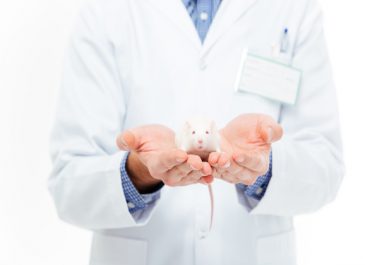California Passes Bill Banning Animal Testing on Products
 Starting January 2020, California will ban all animal testing on products making them the first state in the US to pass the legislation.
Starting January 2020, California will ban all animal testing on products making them the first state in the US to pass the legislation.
First introduced in February by Senator Cathleen Galgiani, SB 1249 is sponsored by Social Compassion in Legislation and the Physicians Committee for Responsible Medicine. The bill is also supported by Cruelty Free International and Lush Cosmetics.
The bill makes it illegal for any cosmetic manufacturer to knowingly sell or import any cosmetic or product that was tested on animals after January 2020. Products include personal hygiene items such as shampoo, deodorant, lotions and soaps.
Along with cruelty-free products, the individual ingredients in the products must also be free from animal testing. A violation will result in a $500 fine for the offense and a $1000 fine for every offense after. The goal is to encourage other states to follow suit and start banning animal testing on products.
Animal testing on cosmetic and hygiene products began in 1938 with the signing of The United States Food, Drug & Cosmetic Act. This law required certain safety testing to be done on cosmetic products, prompting labs to begin testing on animals, according to The Humane Society.
From there it was noted that severe animal suffering was occurring for those subjected to the testing of products, mainly due to the Draize eye and skin irritancy tests.
The Draize test involves mainly rabbits who’s eyes are used to test chemicals to measure reactions. Skin patches are also used to test chemicals for irritation.
The measurement process helps lab techs get an idea of how harmful or irritating a particular chemical might be for a person and rank it on a scale. Many chemicals tested were those found in cosmetics such as mascara.
The test, however, was deemed to be cruel and the argument that rabbits were used came into play because a rabbit’s eye is nothing similar to that of a human.
Today the test is not a common practice. SB 1249 lists an alternative method to animal testing, one that is both safer, more  reliable and accurate, as well as being more cost efficient. Using engineered 3-D human skin tissues, or other types of cells, and sophisticated computer models.
reliable and accurate, as well as being more cost efficient. Using engineered 3-D human skin tissues, or other types of cells, and sophisticated computer models.
The European Union ended the testing of products on animals in 2013. With the passing of the new legislation California aims to entice other states to also pass similar legislation, and use the technology available instead of testing on animals.
















